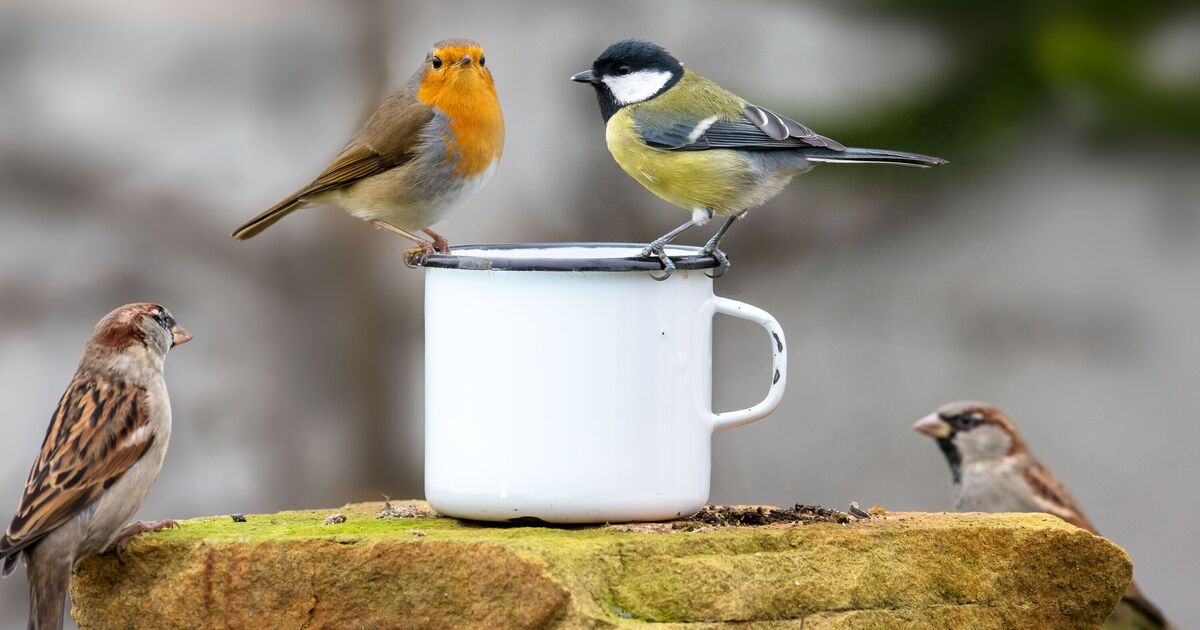UK households feeding birds in their garden this winter have been issued a warning to avoid two types of food.
It is important that food is left out for garden birds during the colder months as it helps them survive the chilly temperatures and prepare for nesting in spring.
Food can be hard to come by for birds at this time of the year as their natural food sources, such as berries, seeds and fruit, are scarce and snacks like live insects and worms may be harder to access, or could be frozen, so it’s key that gardeners help to give them sustenance.
The Royal Society for the Protection of Birds (RSPB) says food and water should be put out for birds on a regular basis throughout the winter and in severe weather, birds may need feeding twice daily.
Birds require high-energy, high-fat food when the weather is cold to help keep them active and warm, so foods like suet, berries, dried fruits and grated cheese are good options, but households are warned to avoid leaving out milk and bread.
Birds cannot digest milk as they are lactose intolerant so if they consume any it can cause serious stomach problems, which in some cases can be fatal.
Bread should also be avoided as, while birds can digest this, the amount of nutrition it provides them is very low so they don’t get the nutrients or energy they require which is vital in winter, so birds are better served by being left more energy-rich foods.
Additionally, if bread is too large or has gone hard it can present a choking hazard to small birds, and if it is left to go mouldy this can lead to illness as it can contain toxins which are harmful.
The Woodland Trust warns: “Don’t forget to always provide fresh water for birds to drink and bathe in. And remember – no matter which birds you’re feeding, never put out milk as it can make them really ill.
“It’s always best to avoid leaving bread out for birds. While it fills them up, it doesn’t provide the right sort of nutrients or energy they need each day. This is especially bad in winter when birds need lots of good quality food to boost their energy reserves and help them keep warm.”











